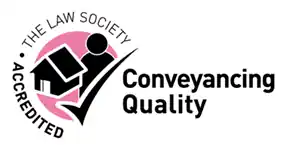Industrial Injury Claims
Our personal injury lawyers can help you to make an industrial injuries compensation claim for:
- the injuries you have suffered;
- any adverse impact those injuries have had on the quality of your life;
- any costs you have incurred, for example in travelling to and from medical appointments or buying specialist equipment or mobility aids;
- any loss of income, for example through a drop in wages or pension payments; and
- the cost of providing you with ongoing long term care.
Where you are seeking compensation for a fatal accident in which a relative has died, we can help you to recover funeral costs, medical expenses incurred in the months or years leading up to death, a lump sum to cover any financial support you have lost out on as a result of your loved one no longer being around to provide for you, and of course a payment to acknowledge the pain and suffering caused by your grief.
Our lawyers can also put you in touch with a range of support groups, from the British Lung Foundation following a diagnosis of mesothelioma to the British Tinnitus Association following the development of constant ringing or buzzing sounds in your ears. We can also signpost you and other family members to local and national bereavement counselling services.
Personal Injury Compensation
A compensation claim may be possible in any case where injury or death has occurred following the development of a workplace related condition, including:
- mesothelioma, diffuse pleural thickening, pleural effusion and any other asbestos related disease;
- chronic obstructive pulmonary disease, occupational asthma, silicosis, black lung and other respiratory problems;
- cancer, heart disease, organ failure, dermatitis and osteoarthritis associated with chemical poisoning;
- disfigurement, scarring or sight damage caused by a chemical burn, chemical spillages or exposure to harmful substances;
- tinnitus, acoustic shock and any other form of noise-induced hearing damage; or
- repetitive strain injury, carpal tunnel syndrome, osteoarthritis or vibration white finger caused by having to perform recurrent tasks.
We can also help to highlight any factors that contributed to you becoming ill, including a lack of personal protective equipment or a failure to promptly repair faulty equipment. By doing this your employer will have a chance to make changes to their procedures to hopefully stop anyone else developing what may be a very serious illness.
A claim may still be possible even if your employer no longer exists or cannot be traced.
Compensation Amount
The amount of compensation you receive will depend on the severity of your injury, the impact it has had on your life and whether it has or will ultimately lead to your death. Payment for repetitive strain injury might average out at around £10,000 whereas a mesothelioma claim could secure you or your family upwards of £120,000.
Time limits
How long you have to make a claim for compensation will depend on when you were injured or first realised that something may be wrong with you that could be linked back to your work. As soon as you become aware that an injury has been caused you will generally have three years in which to take action, unless you were under 18 at the time the injury occurred in which case you will have three years from your 18th birthday in which to claim.
In the event you wish to make a claim on behalf of a relative who died within three years of finding out that they had an industrial illness, you will generally have a further three years from the date of their death or point at which their personal representatives became aware of the illness, whichever is later, to proceed.
Failing to seek legal advice early can result in you losing the right to make a compensation claim so it is important that you contact us as soon as you become aware that an injury has occurred.
Why choose Step Legal Solicitors?
Our lawyers are industrial disease claim specialists who have been helping victims seek injured workers compensation for many years, including for asbestos claims and other workplace illness. We have an impressive track record in achieving great results, including for people who have been told by other solicitors that their case is hopeless, that they have missed the time limit for bringing a claim or who have been offered inadequate compensation in view of the average payout for their type of condition.
Recent successes achieved by our team include:
- recovering £90,000 for a gentleman in his 90s who had developed mesothelioma from exposure to asbestos many years ago while working for a telecommunications company; and
- securing £15,000 for a gentleman with noise induced hearing loss and tinnitus caused by working with heavy machinery in a noisy factory for over 20 years with no ear defenders.
Our services are rated highly by clients and many people who come to us for help do so on the basis of a recommendation from someone who has already been through the legal process of making an industrial disease or accident at work claim with our support. Why not read some of our client testimonials to find out why so many of our former clients recommended our services to their family, friends and colleagues.
We are members of The Law Society Personal Injury Accreditation Scheme which is only open to lawyers who can prove their expertise in dealing with personal injury matters. We are also members of the Association of Personal Injury Lawyers who work tirelessly to ensure that accident victims retain the right to seek compensation in the face of growing efforts to restrict access to justice.
Legal Fees
We offer a free initial consultation during which we will advise you whether we think a claim may be possible. Where it is, and you decide you would like to proceed, we can usually arrange for your case to be funded on a no win, no fee basis which will mean that there will be no charge for our services if your claim is not successful and any costs you might have to pay if you lose will be covered by an insurance policy. As explained in our costs information booklet, this means that there should be no financial risk to you in making a claim.
Location
Our offices are based in Crewe, about a 10 minute walk from the train station. They are disabled-friendly, with step-free access to the main reception area and to our ground floor meeting room.
Clients who have difficulty in walking are free to use an allocated parking space or if you prefer we can arrange a home visit.
We cover a wide area spanning Cheshire and Staffordshire, including Nantwich, Northwich, Sandbach, Macclesfield and Stoke-on-Trent.
Polish clients
We undertake a lot of work for the Polish community who come to us not only because of our recognised expertise but also because of the free interpretation and translation services offered to our Polish clients by Agnieszka Kulas, a paralegal with our firm.
Any questions?
We understand that you may have a lot of questions that need answering before you can decide whether or not you want to start the legal process of making personal injury claim. Our lawyers in Crewe will do their best to answer these for you, along with any other questions you may have as your case progresses.
Answers to some of the most frequent questions we are asked can be found by clicking on the links below.
You can make a personal injury claim whenever you have been physically or psychologically injured in an accident for which someone else was to blame or where an injury has occurred as a result of a criminal act in which you were an innocent bystander.
A claim can also be made for injuries suffered by a close relative where they are unable to claim for themselves, for example due to their age, the severity of their injuries or because they have since passed away.
The type of things you can claim for will vary depending on how your injuries were caused, who you are claiming against and whether your claim is governed by English law or the law of another country, for instance where you have been hurt in an accident abroad.
In most cases a claim can be made for:
In the event of a fatal accident, a claim can usually be made for:
In the event of a criminal act resulting in injury, a claim can usually be made for:
any associated loss of earnings or out of pocket expenses.
The amount of compensation you receive will vary depending on a number of factors, including:
Compensation for minor injuries from which a full and relatively speedy recovery can be expected will typically command payments of a few thousand pounds whereas the compensation for more serious life changing or life threatening injuries can result in payments running into hundreds of thousands if not millions of pounds.
Where a claim for compensation is made against the government then the amount of compensation you receive will usually be capped. This will be the case where a claim for injuries arising out of a violent criminal act is made to the Criminal Injuries Compensation Authority and for asbestos related mesothelioma claims made under the Diffuse Mesothelioma Payments Scheme where neither the responsible employer nor their insurer can be found.
Yes. Whenever a personal injury claim is made consideration will be given to whether there is anything that can be done to help you recover more fully or more quickly. Where we believe that there are things which could help we will discuss these with the person or organisation we are proposing to sue on your behalf (or, in many cases their insurer) to see whether they would be prepared to pay for these things to give you the best chance of getting your life back on track as soon as possible.
Our request for help has to be considered seriously because under the rules which govern personal injury claims there is an obligation to assess at any early stage, in every case, whether you would be likely to benefit from any further medical treatment, rehabilitative services such as physiotherapy or counselling, mobility aids and specialist equipment or professional support while you attempt a phased return to work. These rules are set out in the Personal Injury Pre-Action Protocol and the Personal Injury Rehabilitation Code.
Generally speaking where we ask for advanced funding we get it, particularly in cases involving serious injury where the party we propose to sue is clearly at fault and acknowledges this.
We can also often secure a voluntary payment to help tide you over financially if you are beginning to struggle with a drop in wages and increased overheads. Alternatively we can seek a compulsory interim payment order from the court which will entitle you to an early payment on account of any compensation you are likely to receive.
Yes. We are always happy to provide a second opinion where you have been told by another lawyer that your case is not strong enough to proceed or where they believe the time limit for bringing a claim has expired and there are no exceptional circumstances justifying an extension.When you come to see us we will assess your case afresh and if we believe a claim is possible we will tell you
The process for making a claim will vary depending on a number of factors, including the type of injury you have suffered, whether the person or organisation we say is to blame admits responsibility and whether the amount of compensation we are trying to claim on your behalf is agreed or disputed.
Broadly speaking, when you ask us to deal with a claim we will:
signpost you to professional advisors who can help you to manage your money and set up a personal injury compensation trust if necessary to preserve your entitlement to claim means tested state or local authority benefits.
Possibly, it depends on whether the person or organisation we say is to blame for your injuries admits they were at fault and agrees to pay an acceptable amount of compensation. If they do then an out of court settlement will be a real possibility. However, in other cases a court hearing will be needed to determine your claim and decide whether or not a compensation award ought to be made.
Where attendance at court is required this should not be a cause for concern as we will be there to support you. We will explain the process, ensure your case is fully prepared and that it is presented in the best possible light to maximise your chances of walking away with a positive result.
In most cases there will be no upfront costs to pay to make a personal injury claim. This is because in the majority of cases we can deal with your claim under a conditional fee arrangement, more commonly known as a ‘no win, no fee’ deal. Full details of how this type of funding arrangement works can be found in our costs information guide, but in essence under such an arrangement we will agree not to charge you for our services if we are not successful in recovering compensation on your behalf and you will agree that if we are successful we can take a small slice of your compensation by way of reward.
Insurance will be arranged to cover any other costs which may arise and which should mean that, unless the claim you have made is fraudulent or bad in some other way, you will not be exposed to any financial risk even if your claim for compensation ultimately fails.
The time it takes to deal with your claim will depend on a number of factors, including whether the person or organisation we are holding responsible for your injuries admits they were at fault and agrees with our assessment of the compensation you are entitled to. The severity of your injuries will also be relevant, particularly where it is not immediately clear what the long term prognosis is and therefore how much ongoing care and financial support you are likely to need.
By way of example, a straightforward claim for compensation for an injury arising out of a road traffic accident, accident at work or accident at a property may take between two to 12 months to resolve where fault is admitted and the amount of compensation sought is relatively low. However, an injury arising out of a slip, trip or fall or dog bite or animal attack which results in serious injury giving rise to a substantial compensation claim may take one to three years to resolve or even longer where the case is particularly complex.
You should not be put off making a claim because of the time it may take to deal with. Once the wheels have been put in motion it is often possible for us to secure a payment on account of any compensation you are likely to receive to ensure that you can cope financially while your claim is being assessed. Immediate financial help can also usually be obtained to pay for things like private medical treatment, physiotherapy, counselling services and mobility aids which can greatly improve your chances of making a good recovery.
Yes. All personal injury claims are subject to time limits and if you fail to claim within the limit that applies to your case then there is a high probability that a claim will not be possible.
The usual time limit for the vast majority of cases is three years from the date on which your injury occurred or the date on which you became aware of the injury where it took some time to become obvious. However, there are some notable exceptions where a different time limit will apply, including:
These time limits are strictly enforced so you should take legal advice as soon as possible.
Yes, if you are on means tested state or local authority benefits and we believe that a personal injury compensation trust would be appropriate, which will generally be the case if you have received a compensation payment of more than £6,000. This is because under the rules governing means tested benefits you and anyone living in your household can only have access to up to £6,000 in capital or savings without your entitlement to those benefits being reduced and must in no circumstances have access to more than £16,000 or your benefits will be stopped.
A personal injury compensation trust is a device that can be used to help prevent your benefit payments being affected by the compensation you have received. It works by transferring your compensation into a trust which is operated by people independent of you who will manage it on your behalf and drip feed you funds as and when needed.
We will tell you where we think a personal injury compensation trust may be appropriate and help you to make arrangements for one to be established. This must be done within 52 weeks of you receiving your final compensation payment or an interim payment as appropriate.











